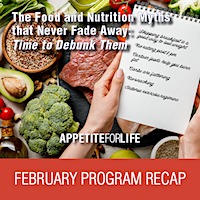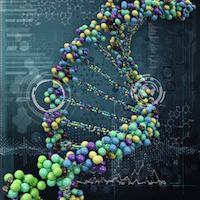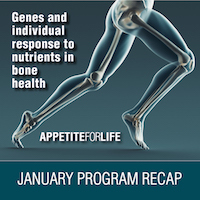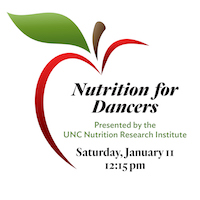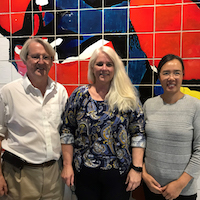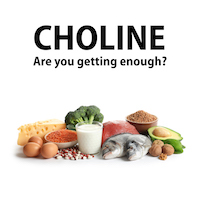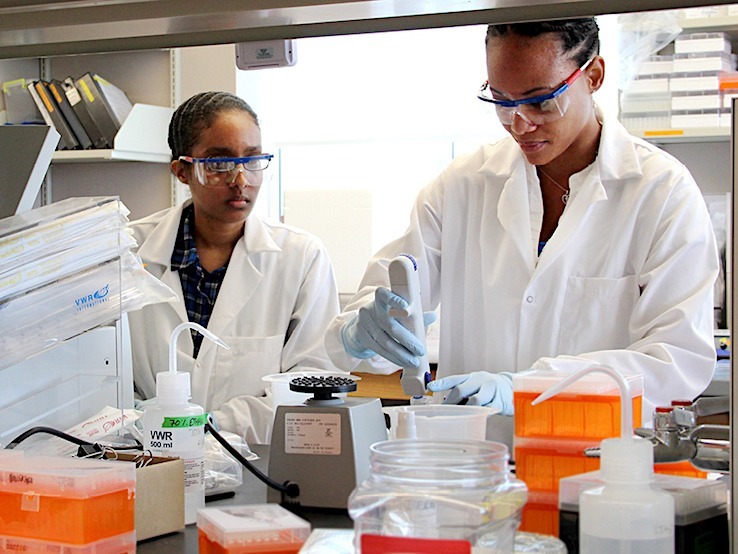News
Our research not only influences the scientific community, but the general public as well. We strive to share our discoveries with everyone. Read some of our latest articles on what is happening at the Nutrition Research Institute.
February AFL Program Recap: “Food and Nutrition Myths That Never Go Away: Time to Debunk Them”
February 26, 2020 – If you missed February’s Appetite for Life Presentation by Cecilia Kwan, PhD, RD, you can catch up. Click through to this post and watch the entire program on video. The live presentation took place at Rowan-Cabarrus Community College in Kannapolis on Thursday, February 19, 2020.
Precision (Personalized) Nutrition: Understanding Metabolic Heterogeneity
February 24, 2020 -People differ in their requirements for and responses to nutrients and bioactive molecules in the diet. Many inputs contribute to metabolic heterogeneity (including variations in genetics, epigenetics, microbiome, lifestyle, diet intake, and environmental exposure).
January AFL Program Recap: “Genes and Individual Response to Nutrients in Bone Health”
January 22, 2020 – If you missed January’s Appetite for Life presentation by Saroja Voruganti, PhD, you can catch up. Click through to this post and watch the entire program on video. The live presentation took place at Rowan-Cabarrus Community College in Kannapolis on Thursday, January 16, 2020.
Nutrition for Dancers @ Piedmont School of Music & Dance
January 22, 2020 – Kaylee Helfrich, a doctoral graduate student in the Smith Lab at the UNC Nutrition Research Institute as well as an accomplished dancer, gave a program on nutrition for dancers at the Piedmont School of Music and Dance in Kannapolis. The recipes from this program are available here for your cooking enjoyment!
Early-Life Predictors of Fetal Alcohol Spectrum Disorders
January 22, 2020 – The clinical teams at the UNC Nutrition Research Institute and in South Africa led by principal investigator Philip A. May, PhD have published findings of a decade-long effort to drive down the age at which the diagnosis of fetal alcohol spectrum disorders (FASD) can be made in affected children. The paper, “Early-Life Predictors of Fetal Alcohol Spectrum Disorders” is published in Pediatrics.
Important NIH Award for NRI and Partners
December 12, 2019 – Agatha Christie once said, “the first time you do a thing is always exciting.” Well, we’ve had a lot of excitement at the Nutrition Research Institute recently! Two members of the Smith Lab are celebrating becoming first-time first-authors of scientific journal publications.
NRI Congratulates First-time First-Authors
December 12, 2019 – Agatha Christie once said, “the first time you do a thing is always exciting.” Well, we’ve had a lot of excitement at the Nutrition Research Institute recently! Two members of the Smith Lab are celebrating becoming first-time first-authors of scientific journal publications.
Choline: The forgotten vital nutrient we’re not getting enough of
November 14, 2019 – Eating a plant-based diet? You may be low on choline. Standard nutritional advice to cut down on meat and dairy may be stopping us getting enough of an essential nutrient named choline. Should we be worried?
If food is medicine, why isn’t it taught at medical schools?
November 14, 2019 – Students in medical schools across the country spend less than 1 percent of lecture time learning about diet. Earlier this year, Mount Sinai, the biggest hospital network in New York City, invested in a meal delivery service. Though it seemed like an unusual move at the time, the network’s decision makes sense if you consider the intrinsic relationship between food and health—a connection underscored by countless other recent examples of healthcare initiatives that harness diet as a tool to improve well-being.
Support the NRI
By donating to the Nutrition Research Institute, your money targets the root of most American disease. Our scientists focus on how our genes respond to food so that soon medical practitioners will be able to guide people in their health from childhood through old age. Our critical research depends on the generosity of people like you.

